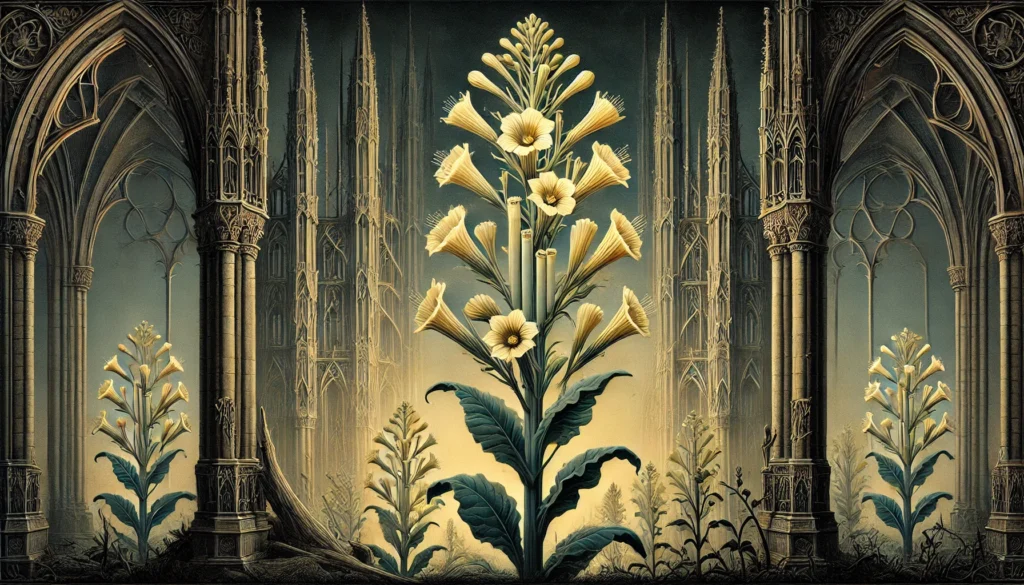

Home » Cat Plants » How Dangerous is the Tree Tobacco Plant for Cats?

Tree tobacco (Nicotiana glauca) is a flowering plant native to South America that has become naturalized in many warm regions worldwide, including parts of the United States.
This fast-growing shrub is considered an invasive weed in some areas. While tree tobacco is not a true allergen, it contains alkaloids that can be toxic to cats and cause serious illness if ingested.
Ingestion may cause mild gastrointestinal upset, but is generally not life-threatening.
Ingestion can result in mild symptoms like vomiting, diarrhea, or drooling. Rarely fatal but may require veterinary care.
Eating these plants can lead to more pronounced symptoms like abdominal pain, lethargy, or difficulty breathing. Veterinary intervention may be necessary.
Ingesting even small amounts can cause severe symptoms like organ damage, seizures, or cardiac failure without rapid treatment.
All parts of these plants are extremely poisonous to cats and can quickly lead to death, even with immediate veterinary care.
** Please note: Please note that toxicity level can vary based on the amount ingested and the specific cat. It's always best to keep these plants completely inaccessible to cats and seek immediate veterinary care or call the poison hotline if you suspect your cat has ingested any part of a toxic plant.
If a cat ingests any part of a tree tobacco plant, it may experience:
The toxic alkaloids in tree tobacco can affect a cat’s digestive system and nervous system. Ingesting larger amounts can lead to respiratory failure, coma, and death if untreated. Seek immediate veterinary care if you suspect your cat has eaten any part of this plant.
If you bring your cat to the vet after ingesting tree tobacco, the vet will likely:

A: Yes, Tree Tobacco is toxic to cats. It contains toxic alkaloids like nicotine and anabasine, which can cause symptoms such as vomiting, drooling, and even potentially lethal consequences if ingested.
A: If a cat eats Tree Tobacco, it may experience symptoms like vomiting, excessive drooling, and hyperexcitability followed by depression. Immediate veterinary care is crucial to prevent more serious health issues.
A: Yes, all parts of the Tree Tobacco plant, including the leaves, stems, and flowers, are toxic to cats. The plant contains dangerous compounds that can cause poisoning if ingested.
A: Even small amounts of Tree Tobacco can be harmful to cats. Ingesting any part of the plant can result in toxic reactions, so it’s essential to keep it away from pets.
A: Tree Tobacco poisoning can be fatal in cats if not treated promptly, especially after consuming larger amounts. Quick intervention is necessary to manage symptoms and prevent life-threatening effects.
A: If your cat ingests Tree Tobacco, contact your veterinarian immediately. Early intervention can reduce the toxic effects and protect your cat’s health.
Tree tobacco is named for its large size compared to other species in the Nicotiana genus, which includes common tobacco. It was first described in Brazil in the early 19th century. Indigenous South Americans used tree tobacco medicinally and ritualistically for centuries before European contact.
Today, it has spread worldwide as an ornamental plant and invasive weed. All parts of the plant contain toxic pyridine alkaloids, especially anabasine, which is chemically similar to nicotine.
Please note: The information shared in this post is for informational purposes only and should not be considered as veterinary medical advice.
🐾 A hilarious or heart-melting cat video
🐾 Our latest paws-on review of a cool cat toy